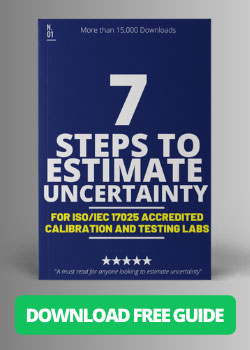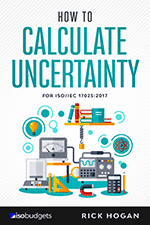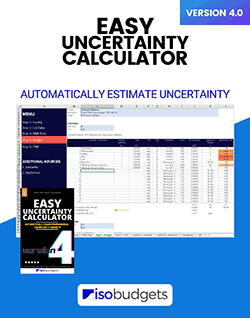I was answering questions on LinkedIn the other day and came across an individual who wanted to know how to evaluate their suppliers in accordance with section 4.6.4 of the ISO/IEC 17025:2005 standard. Most of the answers posted involved elaborate evaluations and superficial criteria that would not be applicable to most laboratories for evaluating their suppliers. So, I answered the question and recommended to ‘Keep it simple,’ and evaluate their suppliers based on criteria that was important to them.
Keep It Simple
Too many times, we all tend to overanalyze things and forget the very basic reasons which we make decisions. In the end, it is all about making decisions and justifying the reason for our choices. So, I recommend to sit back, relax, take a deep breath, and focus on the points which are important to you for decision making purposes. If you are having problems overcomplicating things, elicit the opinions of your peers or coworkers. It may offer you suggestions, perspective, and clarity.
Establish Criteria
First, we need to establish ‘what’ is important to us when deciding whom we do business with. The ‘what’ will be different for every organization, but I recommend that you keep it simple. What triggers you use select supplier ‘X’ over supplier ‘Y?’
Establish an Evaluation System
Next, establish how you will grade or evaluate the supplier based on the previously established criteria. The evaluation can be qualitative (e.g. Great, Good, Poor), quantitative (e.g. scored 1 to 10), and(or) a combination of both. Again, this evaluation is for you and your organization to make decisions, so make it something simple to perform and maintain.
Establish a Method
Now, you must establish the ‘how.’ How will you evaluate suppliers, maintain evaluation records and a list of those approved. Similar to everything else I have mentioned here, develop a simple method to easily accomplish the tasks required to satisfy the standard. If your method and evaluation requires a PhD to perform, return the earlier paragraph, ‘Keep it Simple.’
Recommendations
When it comes to evaluating suppliers, I stick to what is important to me; their ability to supply. Therefore, I evaluate them on the performance of their job and grade the following criteria; customer service, delivery time, and cost.
Customer service is important. No one wants to deal with poor customer service. Additionally, customer service includes easiness to order and reorder, easiness to return or exchange, and how they handle problems and mishaps. If a supplier does not provide good customer service, then I will take my business elsewhere.
Delivery time is also important. When you need to order supplies, you want to receive them in a timely manner. Sometimes, you need your supplies yesterday. Do you want to pay for next day shipping or wait 2 to 6 weeks to get supplies in your hand? Most likely not, so I prefer to have suppliers who are within a two-day shipping radius and evaluate them on their time to deliver supplies.
Cost is important and influences many business decisions. However, cost is often associated with quality, where many people presume you get what you pay for (i.e. lower cost = poor quality). Well, this is not always the case. Many of the supplies you purchase are provided by a retailer or distributor, where the quality of the supply has been evaluated prior to purchase. Therefore, I recommend evaluating the supplier on the cost to buy and deliver the product to you.
When it comes to selecting and evaluating suppliers, it is really up to you and your requirements to determine how you select and evaluate suppliers. There is not a right or wrong way. You just need to have a process in place for others to follow to ensure reproducible results. However, remember to keep it simple and focus on criteria that will help you make smart decisions quickly.




